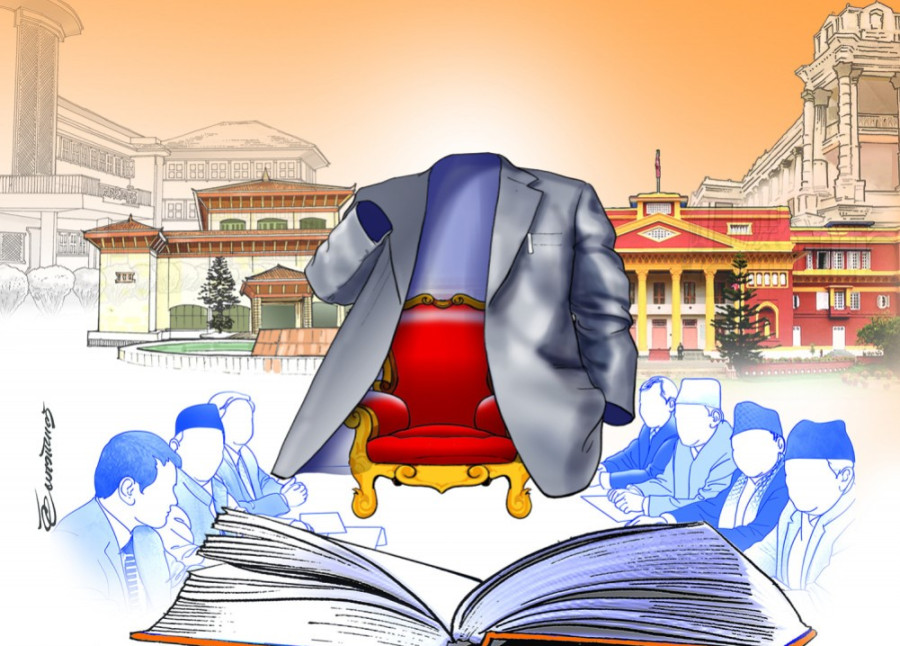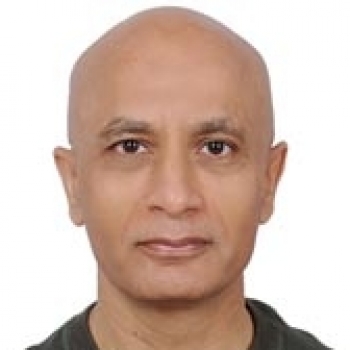Columns
Constitutional amendment through referendum
Power-hungry politicians gravitating toward new parties/faces in search of solutions have failed the people.
Paban Raj Pandey
Prime Minister Pushpa Kamal Dahal’s so-called ‘magic number’ edifice is collapsing. The two largest parties in the 275-seat House of Representatives—Nepali Congress and Communist Party of Nepal (United Marxist-Leninist), with 88 and 78 seats respectively—have decided to coalesce to form the next government. This will end the most recent alliance struck in March this year between Khadga Prasad Oli-led CPN (UML) and Dahal-led Communist Party of Nepal (Maoist Centre). Dahal, with 32 seats which he referred to as a magic number, has been in power since December 2022, switching alliances three other times to survive during these 18 months. It seems things have come full circle for Dahal.
In the November 2022 election, no party secured a clear majority. As the two largest parties, the Congress and the UML had ambitions to occupy Singha Durbar. But it was Dahal who cunningly played Oli and Congress leader Sher Bahadur Deuba to remain relevant. Earlier, along with some fringe parties, Dahal and Deuba fought the 2022 election together, winning 136 of the required 138 seats. As both held prime ministerial ambitions, there was no agreement. Oli came to Dahal’s rescue, but that union only lasted two months. Dahal then returned to Deuba, only to end the alliance after 12 months and go back to Oli. Tired of being played repeatedly, Oli and Deuba are giving Dahal a taste of his own medicine.
On July 3, all eight UML ministers resigned; Oli also wrote to Dahal, withdrawing his party’s support for the government. Since the UML is the largest coalition partner, this effectively amounts to an end of the road for Dahal’s administration, but he resisted calls for immediate resignation, saying he would seek a vote of confidence from the House, which he said on July 5 he would do on 12. The sooner he did that, the better—for himself and healing purposes.
If he had instead waited the entire 30 days, this would probably have dealt another blow to his legacy. The longer he waited, one can imagine a scenario in which bureaucrats would begin to ignore orders from a lame-duck prime minister.
Lust for power
Dahal’s fall from grace was sudden. He even talked about possibly lasting the entire five years. Conspiracy theories abound, including interference from the invisible hand of foreign powers. Home Minister Rabi Lamichhane of the Rastriya Swatantra Party is on record saying the new alliance was forged after he opened major corruption files. Over the last several weeks, Dahal and Oli butted heads over issues relating to ambassadorial appointments, the selection process of chairman at the Securities Board of Nepal, the 2024-25 federal budget, etc. If, as Lamichhane claims, the Oli-Deuba pact is born out of a desire to stop him from exposing corruption, then this will only have left a fatal disease untreated.
If instead the alliance is motivated by ending Dahal’s divide-and-rule politics and by a need to amend the constitution, it deserves applause. In a parliamentary system, it is not common for the two largest parties to join forces and rule, as this will reduce opposition to close to non-existent. But this time is indeed different. The public’s level of frustration with self-centred politics is dangerously high. Change is needed. The road ahead will not be without potholes. This is a coalition of strange bedfellows with opposing ideologies and agendas. If past is prelude, it would not be an exaggeration to say that if there is a common denominator between Oli and Deuba, the lust for power tops the list.
A couple of things can throw a monkey wrench into the tie-up once the honeymoon period is over. Oli is set to become the prime minister for the first year and a half, followed by Deuba for the remaining term until the next election. In the past, Oli has shown to possess authoritarian tendencies. Oli and Dahal contested the 2017 election together, winning nearly two-thirds of the seats. Oli first became the prime minister, only to renege on his promise to Dahal that the latter would lead the government in the latter half. Oli then dissolved Parliament twice—December 2020 and May 2021—and both were declared unconstitutional by the Supreme Court. This will always be in the back of Deuba’s mind.
Public yearn for stability
Then there is the issue of amendment to the Constitution of Nepal. The Constitution that came into effect in September 2015 is young and is learning by making mistakes. Constitutional amendments are rare, but they do—and should—occur. In the life of a nation, as time moves on, new needs are born and flaws in the system are laid bare. Nepal is a living testament to this. In the not-too-distant future, there will come a time when Oli and Deuba—and others like Dahal—will begin to look out for their self-interests as they try to protect their turf and win over rivals’ voting block whenever possible. This can potentially complicate things and can sow the seeds of mistrust among the leaders.
Article 275 of the Constitution provides for a referendum if a two-thirds majority in Parliament decides to hold one with respect to matters of national importance. Issues worthy of amendment are aplenty. There are question marks around the 60/40 split between the first-past-the-post voting and proportional representation, and if the latter is in the way of a majority government. Separation of powers between the federal and local authorities is as important as is the need—or a lack thereof—of provinces. There are growing calls for the restoration of a Hindu state, not to mention if there is a place for constitutional monarchy. These are all matters of national importance, and the public should have a say in it.
For Deuba and Oli, this is an opportunity to rise to the occasion. Deuba, 78, and Oli, 72, have already served five and two terms, respectively, as prime ministers. They have already secured their names in Nepal’s history. But if they botch this one and the public decides it was just a case of corrupt saving corrupt, history will not forgive them, including a backlash they are likely to receive in the next general election. All signs indicate that Nepal has reached a difficult impasse.
Power-hungry politicians gravitating toward new parties/faces in search of solutions have failed the people. Stability is needed—political, economic, and whatnot. Amending the Constitution in the proper manner can lead to this.




 9.12°C Kathmandu
9.12°C Kathmandu















